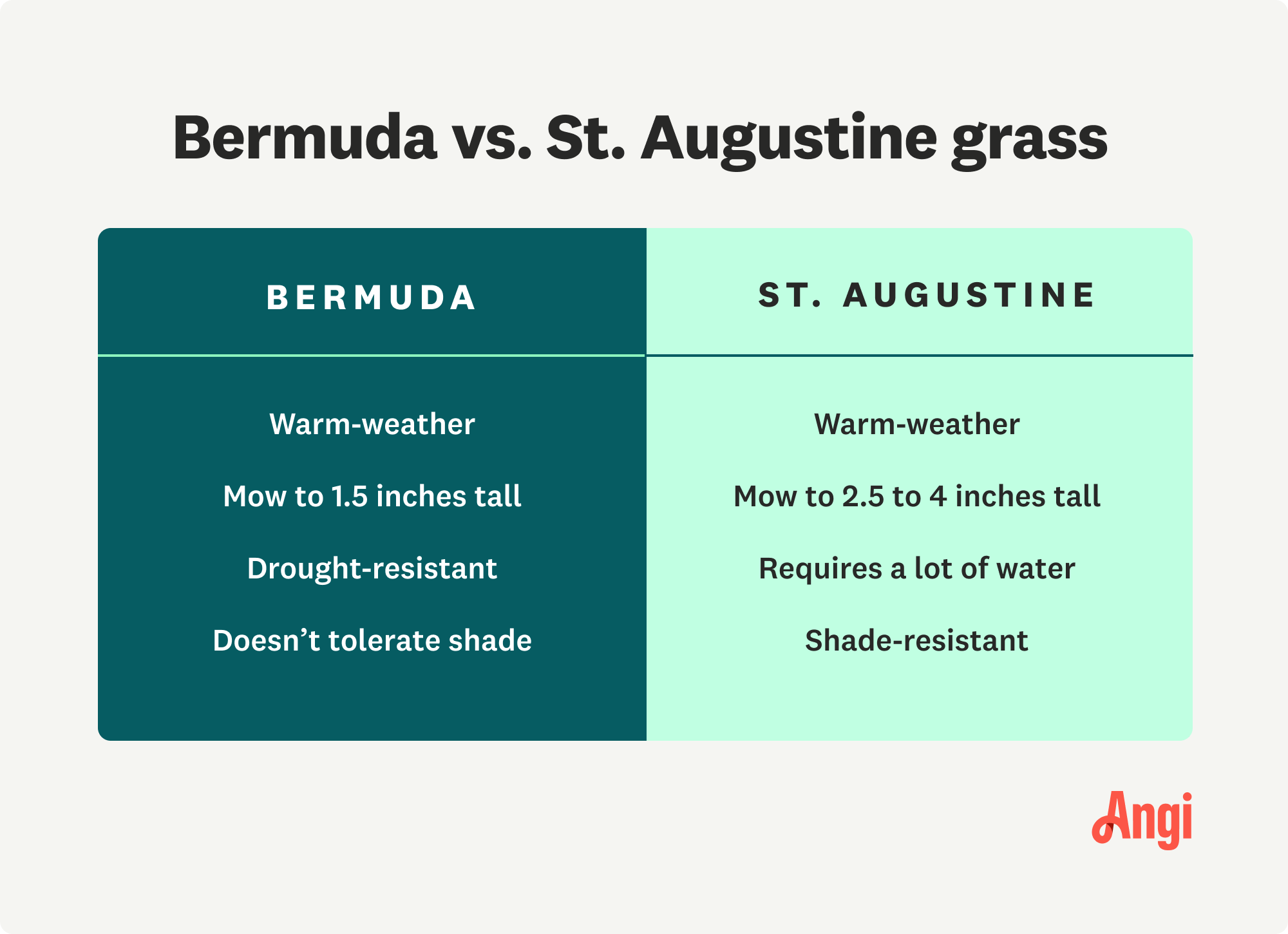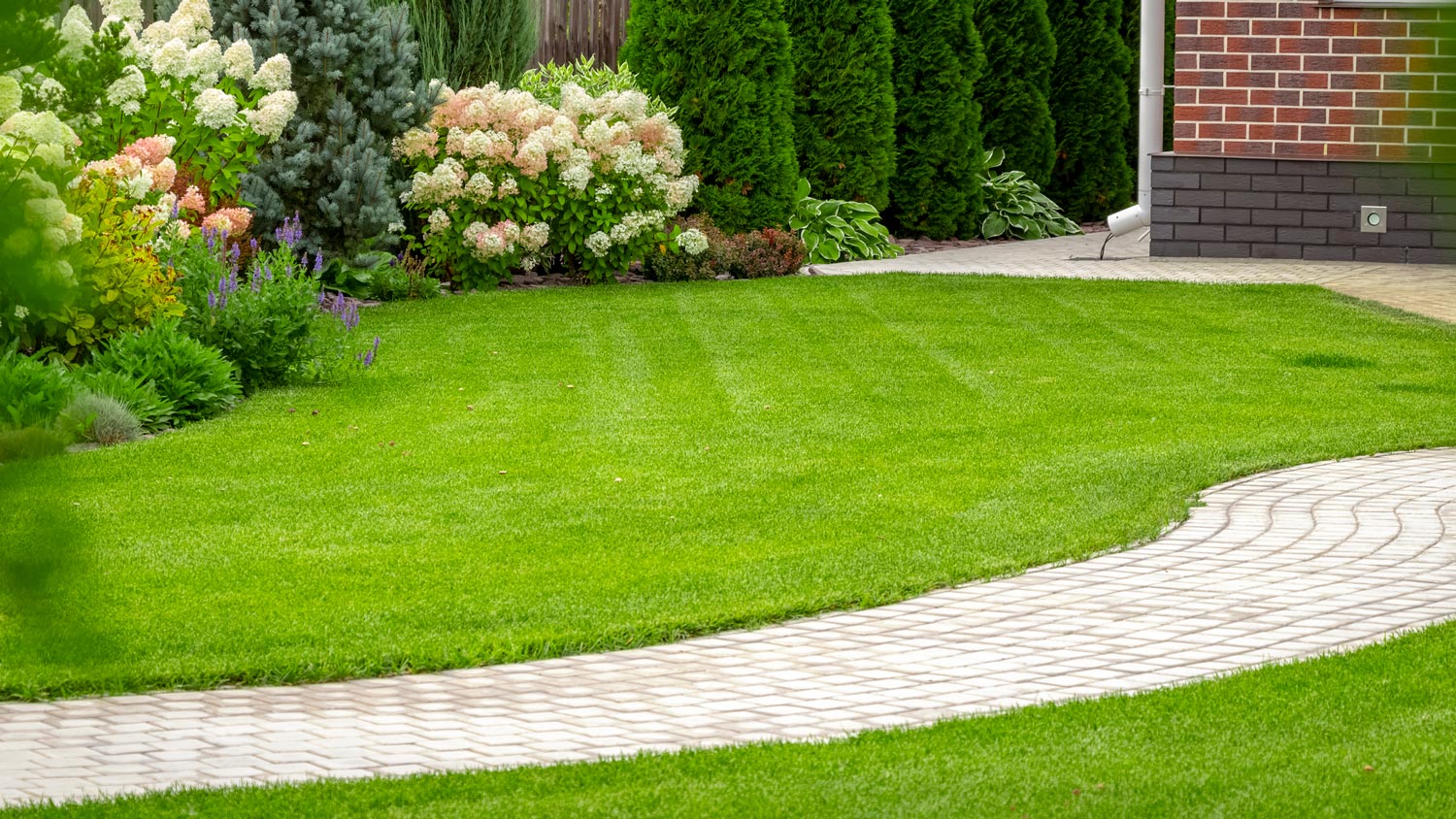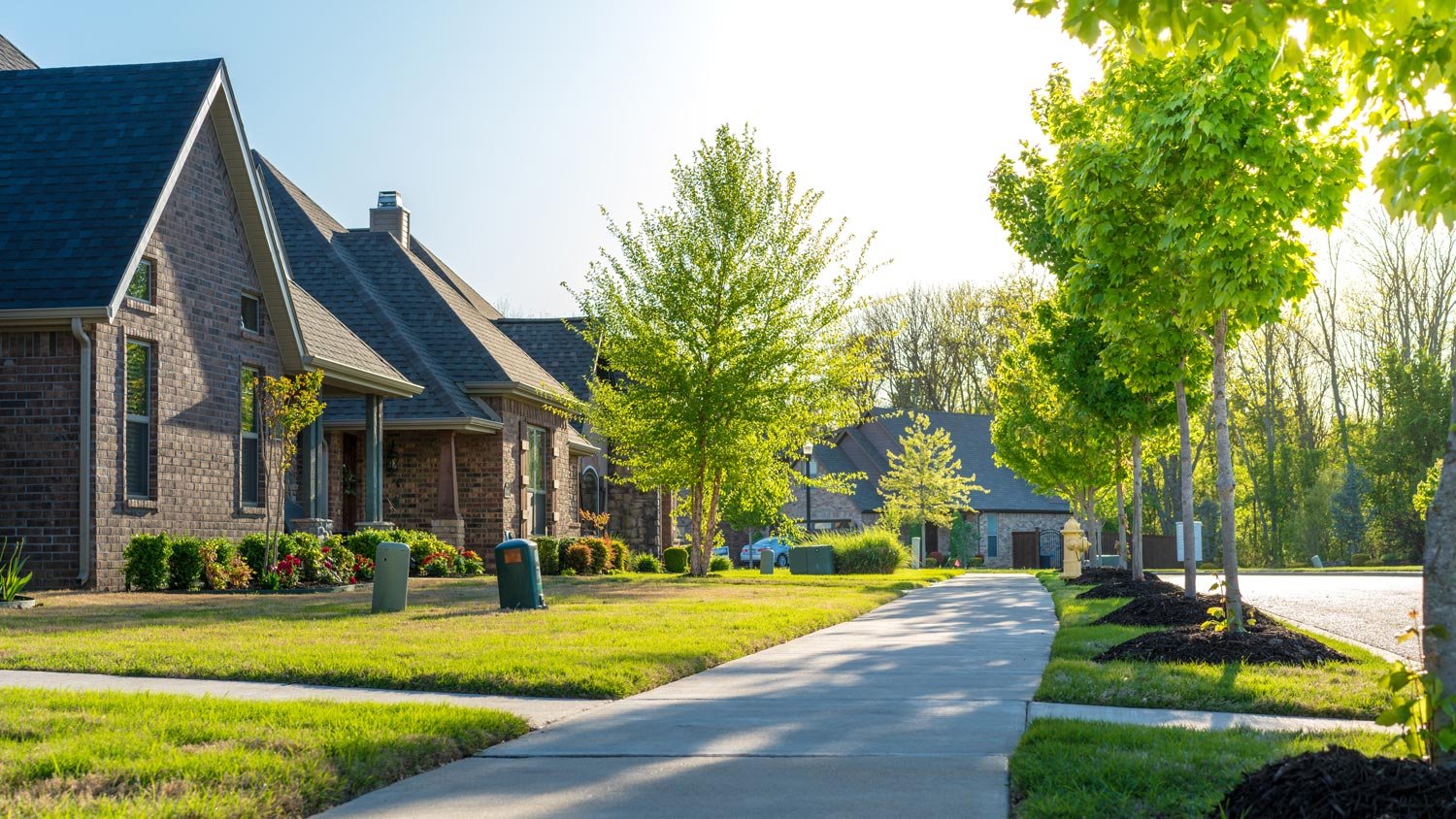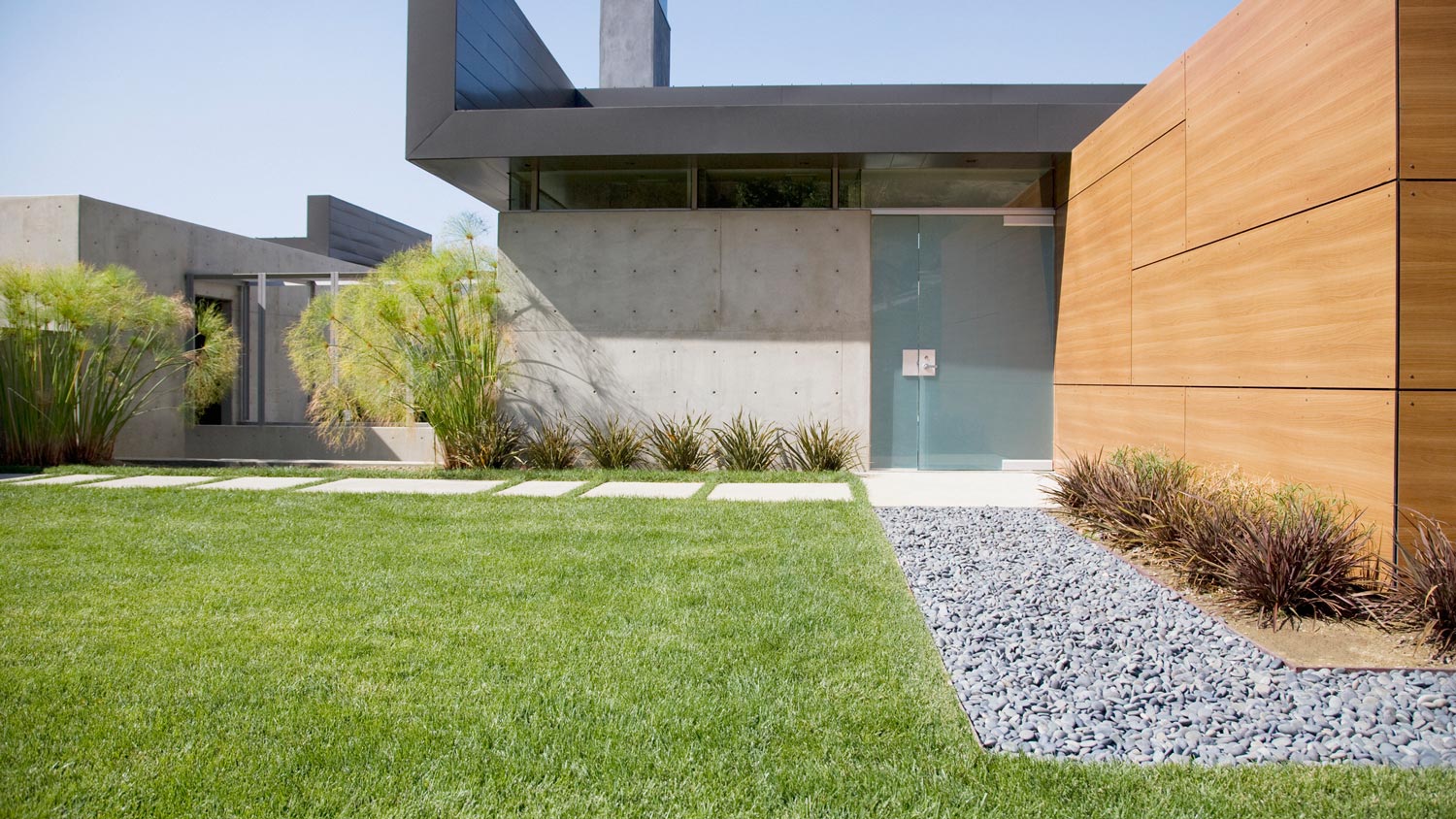
Your total lawn care cost depends on several factors, including the type of service and lawn size. Our guide will cover what you can expect to pay for lawn care.
Choose your warm-weather grass favorite


Bermuda and St. Augustine are warm-weather grasses.
Bermuda grass grows short and is drought-resistant.
St. Augustine is taller and needs frequent watering.
St. Augustine is shade-resistant, whereas Bermuda grass is not.
There’s a lot to consider when choosing grass for Southern lawns, especially when debating between bermuda grass vs. St. Augustine grass. You’ll need something that can handle heat and potentially sandy soil, plus you may need to consider grass that tolerates drought or shade. Bermuda and St. Augustine are two of the most popular warm-weather grasses for lawns in the southern U.S., but they have different pros and cons. Here are some of the main differences between St. Augustine vs. bermuda grass.


Bermuda is a warm-season grass popular for Southern lawns, as it tolerates heat and drought well. It grows best in Hardiness Zones 6 through 11 and prefers a slightly acidic soil pH of 6 to 6.5.
There are several benefits to choosing bermuda grass for your lawn. Not only is this type of grass drought- and heat-tolerant, but also salt- and pest-resistant. If your family loves to run through and play in the yard or you enjoy having backyard barbecues, bermuda grass will bounce back beautifully from the foot traffic.
Some homeowners like to mix grass seeds to achieve a fuller-looking lawn with various benefits, but be mindful that bermuda is an invasive type of grass. If you mix bermuda with another grass seed, it might take over the lawn. This type of grass also needs frequent mowings to keep it at a height of about 1½ inches. While bermuda grass grows great in the heat, it cannot tolerate cool or even shady locations.

St. Augustine is similar to bermuda grass in that it is a warm-weather grass. It prefers a wide range of soil pH from about 5 to 8½. It grows best in Hardiness Zones 8 through 10 and is Florida’s most common grass choice.
St. Augustine grass can stand up to the heat, but it also tolerates shade. If trees dot your lawn, you can rest assured that this grass will thrive under the shade and in the sunshine. This grass is also unfussy when it comes to soil types and will grow healthy as long as the soil is well-draining.
Unlike bermuda grass, St. Augustine is not drought-tolerant. If your yard isn’t receiving much rain, you’ll need to turn on the hose or run the sprinklers to give it about 1 inch of water per week. This type of grass looks lush on the lawn, but be careful not to expose it to too much foot traffic. St. Augustine grass only tolerates light foot traffic.

Bermuda and St. Augustine grasses are strong contenders for Southern lawns, and some people may even mix the two types in their lawns. Finding the right grass for your lawn depends on your location, what you want your lawn to look like, and how much effort you want to put into maintaining the lawn. Consider hiring a local lawn care service to help you determine the right grass type for your lawn.
Bermuda is the best grass choice for sunny yards. In open areas that receive all-day direct sunshine, Bermuda is the hands-down winner. While St. Augustine grass prefers full direct sun, it can also handle a bit of shade or fewer hours of direct rays daily.
Most sun tolerant: Bermuda
St. Augustine likes to hang out in direct sunlight, but it can grow and thrive in somewhat shady locations, too. On the other hand, bermuda grass is best suited for direct sunlight and has very low shade tolerance.
Most shade tolerant: St. Augustine
You can boost your curb appeal with either of these grass types. Both bermuda and St. Augustine grasses have multiple options available, ranging from bright greens to deep blue-greens.
Most colorful: Tie
Bermuda grass has narrower blades and grows short, while St. Augustine grass has broad, tall blades. Bermuda also feels soft to the tough, and St. Augustine has a more coarse texture.
Best blades: Tie
You can find several different types of bermuda and St. Augustine grasses with different colors to suit your preferences. But while you can plant bermuda grass from seed or sod, St. Augustine is only available as sod. That means you have slightly more purchasing options with bermuda grass.
More sod and seed options: Bermuda
St. Augustine tolerates a wide variety of soil types with pH ranging from 5 to 8.5. Although it does need more water than bermuda grass, it grows well in sunshine and shade, making it easy to maintain your grass.
More adaptable growing conditions: St. Augustine
Bermuda and St. Augustine are heat-tolerant grasses but St. Augustine doesn’t withstand drought as well. On the flip side, St. Augustine is a great choice for shady lawns, because it is shade-tolerant, whereas bermuda is not. Bermuda wins overall, though, because of its added benefit of having high tolerance and recovery to wear and tear.
More durable: Bermuda
Bermuda grass costs about $0.35 to $0.85 per square foot. St. Augustine is slightly less expensive at $0.30 to $0.80 per square foot. Bermuda grows best when planted from seed, but St. Augustine grass is only available to install as plugs or sod.
More affordable: St. Augustine
Bermuda grass works best at a short height, so frequent mowing may be necessary. You’ll also need to routinely edge your lawn to keep grass confined neatly to the yard area, rather than letting the grass blades grow over walkways or the driveway. St. Augustine can grow taller, but it does require more watering than bermuda grass. St. Augustine also needs fertilizer about every 10 weeks, whereas bermuda grass needs fertilizer about twice per year.
Less maintenance: Bermuda
St. Augustine’s stiffer, thicker blades allow you to let it grow long and strong, meaning you or your local lawn mowing service can set the mowing height to between 2 and 4 inches. Bermuda grass does well when cut to a height of ½ inch to 1½ inches.
Higher mowing height: St. Augustine
Use Bermuda grass varieties in areas with high foot traffic. While St. Augustine grass will struggle under frequent traffic, Bermuda is much less prone to ill effects, even in places like golf courses and lawns that receive daily use.
More traffic tolerant: Bermuda
Although both bermuda and St. Augustine grasses are moderately tolerant to drought, they require frequent watering during the growing season. However, bermuda grass doesn’t need watering during winter months when it goes dormant for the season.
More drought tolerant: Bermuda
While both types of grass can suffer damage from leaf spot, brown patch disease, and fall armyworms, bermuda grass can fall victim to several more pests and afflictions. Additional bermuda grass issues can include bermuda grass mites, sod webworms, billbugs, and diseases such as dollar and spring dead spot and pythium.
More pest and disease tolerant: St. Augustine
From average costs to expert advice, get all the answers you need to get your job done.

Your total lawn care cost depends on several factors, including the type of service and lawn size. Our guide will cover what you can expect to pay for lawn care.

Removing an old lawn is often necessary to plant new grass or build a new outdoor structure. Find out what to budget for your lawn removal cost.

The cost to reseed a lawn can vary depending on the size of your yard and the condition of the soil. We’ll help you figure out the true cost of reseeding or overseeding your lawn, along with whether or not you should hire a professional.

The type of grass you have dictates a lot about your lawn, including how you take care of it. This lawn grass identification guide can help.

Fescue grasses are among the top choices for northern and central lawns in the U.S. This hardy, dependable turf grass is a go-to from Montana to Missouri.

If you’re tired of all the upkeep required with grass, consider these grass alternatives. Learn the pros and cons of each.